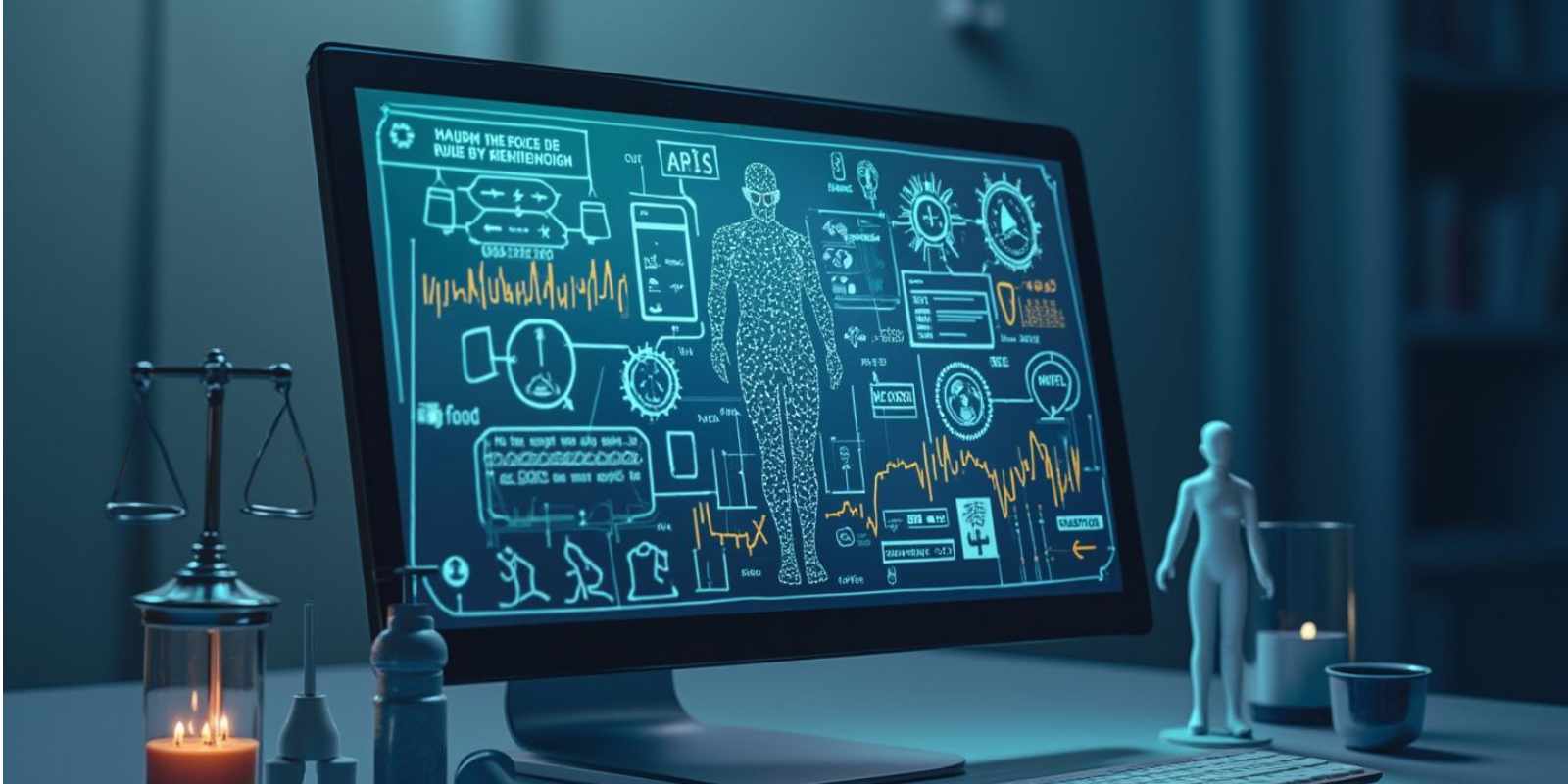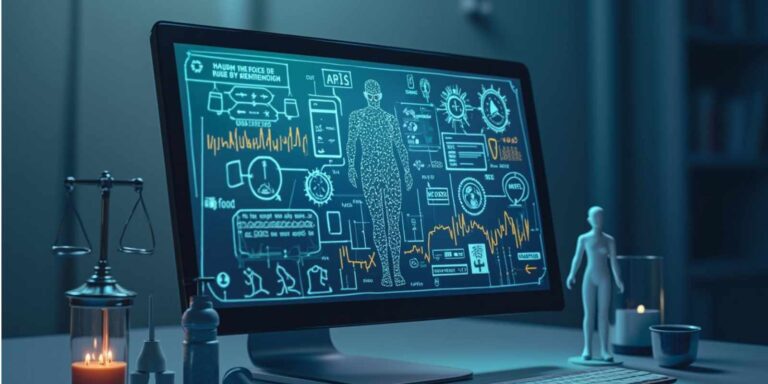As a physician with over 30 years of experience, I’ve seen countless patients delay care because of regulatory confusion:
“Is an online doctor real?”
“Will my pharmacy accept this prescription?”
“Can my employer reject a digital doctor’s note?”
These concerns keep people from accessing care when they need it most.
The truth is that telehealth regulations exist to protect you – not complicate your life.
Let me clear up what you actually need to know about your rights with such services.
Are AI Healthcare Services Legal?
Yes, AI-driven telehealth platforms are legal when they operate with proper medical oversight and regulatory approval.
The FDA has established pathways for AI in healthcare, classifying these systems based on their intended use and potential risk.
For example, ChatRx is FDA-approved as a Class I medical device – meaning it has appropriate safeguards in place and operates under physician oversight (that’s me!).
Here’s what this means for you:
- You’re using a service that meets federal standards
- A real doctor reviews your case
- The system follows the same evidence-based guidelines I’ve used throughout my medical career
Each state has its own telehealth regulations too, but there’s been tremendous progress in standardizing these rules to improve access to care. This is especially important for people in rural areas or those who struggle to get time off work for doctor’s appointments.
What to Know Before Using AI Services
Before trusting any digital healthcare service, take these quick steps:
- Check for Medical Credentials
Look for information about the doctors behind the service. Who’s overseeing the clinical protocols? At ChatRx, I personally ensure our diagnostic approach follows the same rigorous standards I’ve used throughout my career. - Verify Regulatory Approval
Legitimate healthcare platforms should be transparent about their regulatory status. Look for FDA clearance or approval, which means the service has demonstrated it’s safe and effective. Which we are. - Review Privacy Policies
Your health information is deeply personal. Make sure the service clearly explains how they protect your data and complies with HIPAA – the federal law that safeguards medical information. - Understand Service Limitations
No telehealth service can treat everything. Be wary of any platform that claims otherwise. At ChatRx, we’re clear about the 35+ specific conditions we treat and when you should seek emergency care instead.
If a service makes promises that seem too good to be true or isn’t transparent about these basics, that’s a red flag.
Can AI Prescribe Medication Legally?
One of the biggest questions I hear is about prescriptions: “Can an AI system legally prescribe antibiotics?“
With proper medical oversight, yes.
Here’s how legitimate services like ChatRx handle prescriptions:
- Our AI agent conducts a detailed assessment using established clinical guidelines
- The system excludes conditions that would require in-person evaluation
- A licensed healthcare provider reviews cases that meet certain criteria
- Prescriptions are electronically sent to your pharmacy, just like from a traditional doctor’s office
This system actually helps combat antibiotic over-prescribing by ensuring every treatment follows evidence-based guidelines – something that doesn’t always happen in rushed in-person visits.
It’s worth noting that there are stricter regulations for controlled substances (like pain medications or anxiety drugs).
Most telehealth platforms, including ChatRx, don’t prescribe these medications, as they typically require in-person evaluation.
Work Notes and School Excuses
Getting doctor’s notes for work or school is one of those small but frustrating healthcare tasks that takes up valuable time.
The good news: documentation from legitimate telehealth providers carries the same legal weight as notes from in-person visits.
Important things to know:
- Employer requirements: While employers can request documentation that you were ill, privacy laws prevent them from demanding specific medical details
- School acceptance: Most educational institutions accept telehealth documentation, though policies vary
- Documentation elements: Legitimate medical notes include provider credentials, date of service, and general condition information (without revealing private details)
At ChatRx we can provide proper documentation for the conditions we treat, saving you an unnecessary trip to a clinic just for paperwork.
HIPAA and Telehealth
As your doctor, protecting your private health information is one of my most important responsibilities.
This doesn’t change with telehealth.
HIPAA (Health Insurance Portability and Accountability Act) establishes strict standards for protecting patient information, and legitimate telehealth platforms must comply with these regulations.
At ChatRx, we implement multiple layers of protection:
- End-to-end encryption for all communications
- Secure, HIPAA-compliant data storage
- Strict access controls limiting who can view your information
- Regular security testing and updates
You have the right to know how your health information is used. That’s why we maintain clear privacy policies explaining exactly what data we collect and how it’s protected.
The Changing Landscape of Telehealth
Healthcare regulations continue to evolve as technology advances.
Here’s what I see coming:
- Post-pandemic permanence: Many telehealth flexibilities introduced during COVID-19 are becoming permanent, recognizing the value of remote care
- Insurance coverage expansion: More insurance companies are covering telehealth services, making digital healthcare more affordable
- Direct-to-Consumer Cash-based Care: Patients are increasingly opting for direcr-to-consumer (D2C) cash-based healthcare due to convenience, accessibility, transparency, and affordability, bypassing insurance complexities.
- Cross-state practice: States are increasingly allowing telehealth across state lines, creating a more unified system
- AI-specific guidelines: Expect more detailed regulations addressing AI in healthcare specifically
These changes will ultimately benefit patients by improving access while maintaining appropriate safeguards.
Making Informed Healthcare Choices
When it comes to your health, knowledge is power. By understanding telehealth regulations and your rights as a patient, you can confidently choose services that meet your needs while providing proper protection.
AI-powered telehealth platforms like ChatRx represent an exciting advance in healthcare accessibility, but we believe they should continuously operate within a framework that prioritizes your safety, privacy, and quality of care.
- Have you used telehealth services before?
- What questions do you still have about AI in healthcare?
We’re committed to transparency and would love to address your concerns.
Want to experience healthcare that works on your terms? Visit ChatRx.md to join our waitlist to be among the first to access affordable, convenient care when we launch in Spring 2025. Fast, affordable care is just a conversation away.












